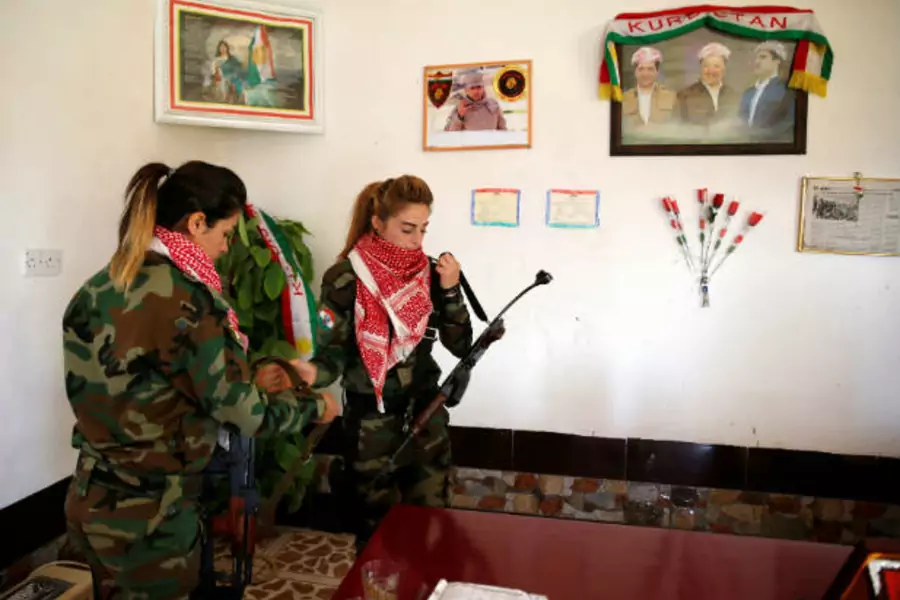Women Around the World: This Week

More on:
Welcome to “Women Around the World: This Week,” a series that highlights noteworthy news related to women and U.S. foreign policy. This week’s post, covering from May 13 to May 20, was compiled with support from Anne Connell.
Women fighters combat the Islamic State New reports highlight the military contributions of Kurdish women to local governments and Western allies fighting the self-proclaimed Islamic State group. Over one thousand women serving as Zeravani—the police forces of the Peshmerga military in the autonomous region of Iraqi Kurdistan—presently train alongside Italian-led coalition forces at a Kurdish base outside of Erbil, Iraq. The women receive two months of basic training as well as a month-long specialized training course, learning infantry skills, marksmanship, first aid, and tactics for battlefield extraction of wounded soldiers. Following the training, a number of women join operations on the front lines near Mosul, while others are stationed as security personnel at embassies and government buildings in local cities. Syrian women and those in the Kurdish Peshmerga have time and again proven their strategic value on the front lines in the fight against the Islamic State: in many cases, women have access to spaces and populations that men do not in traditional society, allowing them to gather critical intelligence and locate places where fighters hide among civilian populations.
Two kidnapped Nigerian schoolgirls return Nigerian government officials announced this week that two Chibok schoolgirls kidnapped by Boko Haram over two years ago were recovered in northeastern Nigeria. Nigerian President Muhammadu Buhari hosted one of the girls, Amina Ali Nkeki—along with her infant, born in captivity—at the presidential villa in Abuja on Thursday. Government officials suggest that Nkeki and a second girl, Serah Luka, escaped Boko Haram captivity during a military campaign in the Sambisa forest, a vast swath of woodland in northeastern Nigeria that is a stronghold of the Islamist group. The Nigerian government, facing criticism about the efficacy of prior efforts to combat Boko Haram and rescue the girls, has pledged to find and return home those still missing: officials announced this week that the military will advance into the Sambisa forest and draw up plans for additional rescue operations.
Turmoil for female leaders in South America Across South America, several prominent female leaders stand accused of corruption. Former Argentine president Cristina Fernández de Kirchner was indicted last week and fined for illegally trading derivatives, which resulted in significant losses for the state. Brazilian President Dilma Rousseff is facing a highly-publicized impeachment trial pursued by a number of lawmakers who are embroiled in scandals of their own, including charges of corruption; to date, Rousseff’s interim replacement has appointed only male ministers. And in Chile, President Michelle Bachelet’s once soaring approval ratings have plummeted amid accusations of tax evasion and bribery by family members. Regional analysts suggest that while gender is not the cause of the leaders’ troubles, the “collective decline of the three women points to a persistence of macho attitudes in the region, especially within the political establishment.” Evidence suggests that traditional attitudes towards women may undermine the quota systems that have boosted rates of women’s political participation in Latin America: sixteen countries in the region have quota systems for lawmakers, and one in four Latin American legislators are women, giving the region the highest proportion of women lawmakers in the world.
More on:
 Online Store
Online Store